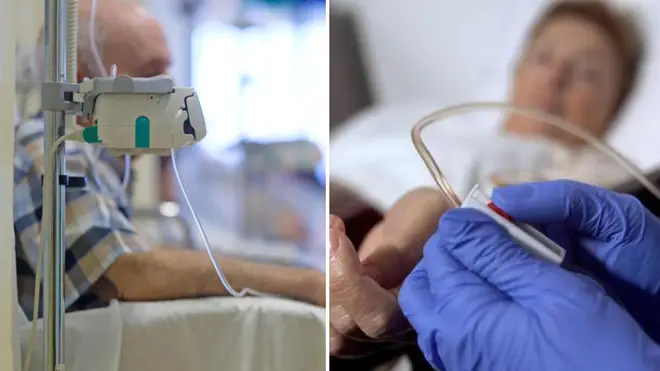
Simon Marks 3pm - 7pm
8 July 2023, 15:01

A cancer patient has died and three others are seriously ill after being administered unlicensed chemotherapy drugs.
The patients were given the unlicensed medicine because Sciensus, the UK's biggest provider of drugs to be administered at home for NHS and private patients, had a manufacturing problem at one of its plants.
The company has admitted to giving the unlicensed version of cabazitaxel, a prostate cancer medicine, to four patients.
Three regulators have said they are investigating the incident, the Guardian first reported.
A spokesman for Sciensus said that "an isolated incident at our medicine manufacturing unit in April has affected four patients.
"We are deeply saddened that one of the patients has since died and wish to offer our sincere condolences to the patient's family and friends.
Read more: Cancer sufferer, 29, needs to raise 'intimidating' sum for lifesaving treatment
"As soon as the incident was discovered, we immediately contacted the regulators, the patients and their doctors.'We are currently conducting a thorough investigation into the incident and are working with the regulators."
Regulators the Medicines and Healthcare products Regulatory Agency (MHRA), Care Quality Commission (CQC) and General Pharmaceutical Council, are all investigating.
"Patient safety is our highest priority," said Dr Alison Cave, the MHRA’s chief safety officer. "We are urgently investigating this issue and we will take any necessary regulatory measures to ensure patients are protected.
"We ask healthcare providers to report any suspected side-effects or medication errors to the Yellow Card scheme website and their local risk management system.”
A spokesperson for the Care Quality Commission (CQC) said: "We are aware of these extremely serious incidents and are working closely with the General Pharmaceutical Council and Medicines and Healthcare products Regulatory Agency who have oversight of the regulation of medicines delivery and safety.
"Our thoughts are with those affected and their families and loved ones. We will not hesitate to take any action necessary within our remit to make sure people using services are safe."
Duncan Rudkin, chief executive of the General Pharmaceutical Council, said: “We wish to extend our sympathies to the patients and families who have been affected. We take all matters relating to patient safety extremely seriously.
"We are working closely with the other regulators involved in investigating this incident and have statutory powers to take action within our remit, in cases where there is serious risk to patients.
"Concerns over patient safety relating to pharmacists, pharmacy technicians or pharmacies should always be reported to us so they can be fully investigated."